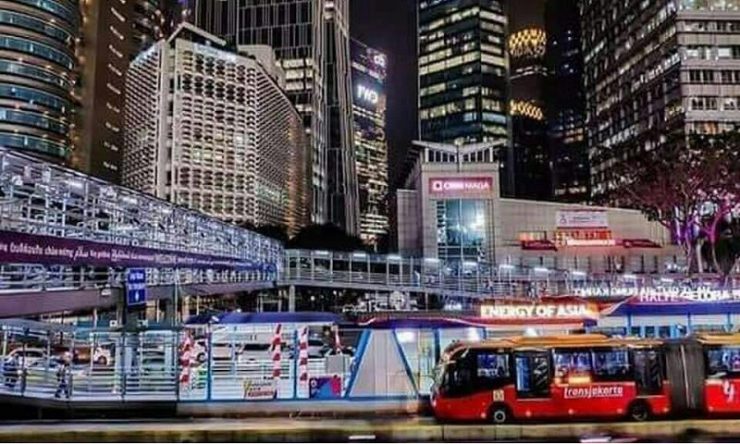THE ever expanding COVID-19 pandemic, including to Indonesia, seems to have influenced the flow of investment into the country.
During January-March 2020 or Quarter I 2020, incoming foreign investment (PMA) fell 9.2% to IDR98.3 trillion from IDR107.9 trillion in the same period the previous year. While Domestic Investment (PMDN) rose 29.3% from the previous IDR87.2 trillion to IDR112.7 trillion.
Nevertheless, investment realization during the first quarter of 2020 reached IDR210.7 trillion, growing 8% compared to the same period in the previous year of IDR195.1 trillion.
The Investment Coordinating Board (BKPM) assesses the decline in foreign investment because COVID-19 only entered Indonesia around March 2020 so that it has not yet had a significant impact on investment realization.
However, the potential decline in investment realization in the Second Quarter of 2020 is sufficient to be noted by the government because it coincides with the continuing increase in COVID-19 cases in the country.
“The second quarter was April, May, June. This April we know the condition as it is now. If you look at the trend of investment realization in the first quarter, the trend of investment realization in the second quarter decreases. Especially foreign investment will go down,” said BKPM Head Bahlil Lahadalia.
To get around the potential for a decrease in the pace of investment, BKPM in collaboration with the Office of Investment and One Stop Integrated Services (DPM PTSP) in the provinces and districts / cities will ensure investment can continue, both existing and starting.
Specifically for PMDN, he said he would continue to communicate with these investors. BKPM will also classify investments based on three clusters, those are investments that are already underway; new investment paths; and new investments will proceed. In addition, we are determined to be able to complete stalled investments worth IDR708 trillion.
Communication with the US
Along with the steps of BKPM, the Coordinating Minister for Maritime Affairs Luhut Binsar Pandjaitan, as one of the “commanders” guards for the entry of investments into Indonesia, also moved quickly to be able to attract maximum investment after the pandemic ended. It was in intense communication with the United States, during the pandemic.
According to him, the government is looking for the right time to be able to communicate with the US and the United Arab Emirates. The former Coordinating Minister for Politics and Security said the US was also building cooperation with Abu Dhabi in the investment sector.
Of course, Indonesia has become one of the investment targets considering that the Southeast Asian region is still considered to be very potential compared to other regions in the future after the end of the pandemic.
“So even with COVID-19 like this, Indonesia is still sexy for other people to invest here. Just how we make the climate supportive. Intense communication had been carried out by President Donald Trump himself and President Jokowi,” he noted.
However, he has not been able to reveal in detail the investment that will be entered into the US. To be sure, both the US and the United Arab Emirates will also invest their capital in the Sovereign Wealth Fund (SWF) which will be formed by the government.
“After completing COVID-19, we agreed that the Sovereign Wealth Fund would be ready. We wait for the Omnibus Law, then they put money in. All the chips are in, what are we going to build. Infrastructure such as the Sumatra Toll Road, is an option,” he said.
Need to overcome obstacles
The United Nations Conference on Trade and Development (UNCTAD) predicts global Foreign Direct Investment (FDI) will fall by 30-40% this year.
Therefore, Associate Researcher Center for Indonesian Policy Studies, Andree Surianta assesses the government needs to continue to maintain the investment climate to open up the broadest opportunities for FDI.
Efforts that have been built in the country, such as through the implementation of the Online Single Submission (OSS), simplification of regulations at various levels of government until the Omnibus Law Working Copyright Bill must continue.
Andree added, although Indonesia could seize opportunities because Asian trends are an important region for global companies, complex regulations are quite deterring foreign investors.
“This refers to the many ministerial and regional regulations and the many inconsistencies that they have caused. If these rules are too much to be overcome, Indonesia will continue to have difficulty attracting foreign investors,” he said.
Complicated and many of these regulations are often claimed to be factors that contribute to impeded investment in Indonesia.
“Investors will be faced with regulations at the central level and then at regulations at the provincial and regional levels, depending on where investors invest. Often the regulations are contradictory, this then creates legal uncertainty which makes investors reluctant to invest in Indonesia,” Andree said .
Meanwhile, Research Director of The Institute for Development of Economics and Finance (Indef) Berly Martawardaya explained the need for the government to encourage the manufacturing sector at this time to encourage the creation of labor.
In addition, BKPM is considered to need to change its investment strategy and targets in the midst of the COVID-19 pandemic. Because, many companies have come out of China, which is a potential for Indonesia to seize these opportunities, compete with Malaysia and Vietnam.
“The most important thing is homework)not only in BKPM, but also in regions. Such as obtaining permits for building permits, building infrastructure, upgrading worker skills, legal certainty, and handling corruption,” Berly said.
The government’s rapid movement is indeed needed to be able to prepare themselves to attract new investment to the country for the welfare of its people.
The incoming investment is expected to be able to create quality jobs for the community, especially with the large number of cases of workers who must be laid off until Termination of Employment due to the impact of the pandemic.
However, for the sake of the people’s welfare, the government also needs to continue to work hard to handle the pandemic so that the incoming investment can truly benefit the people. [antaranews/photo special]
















